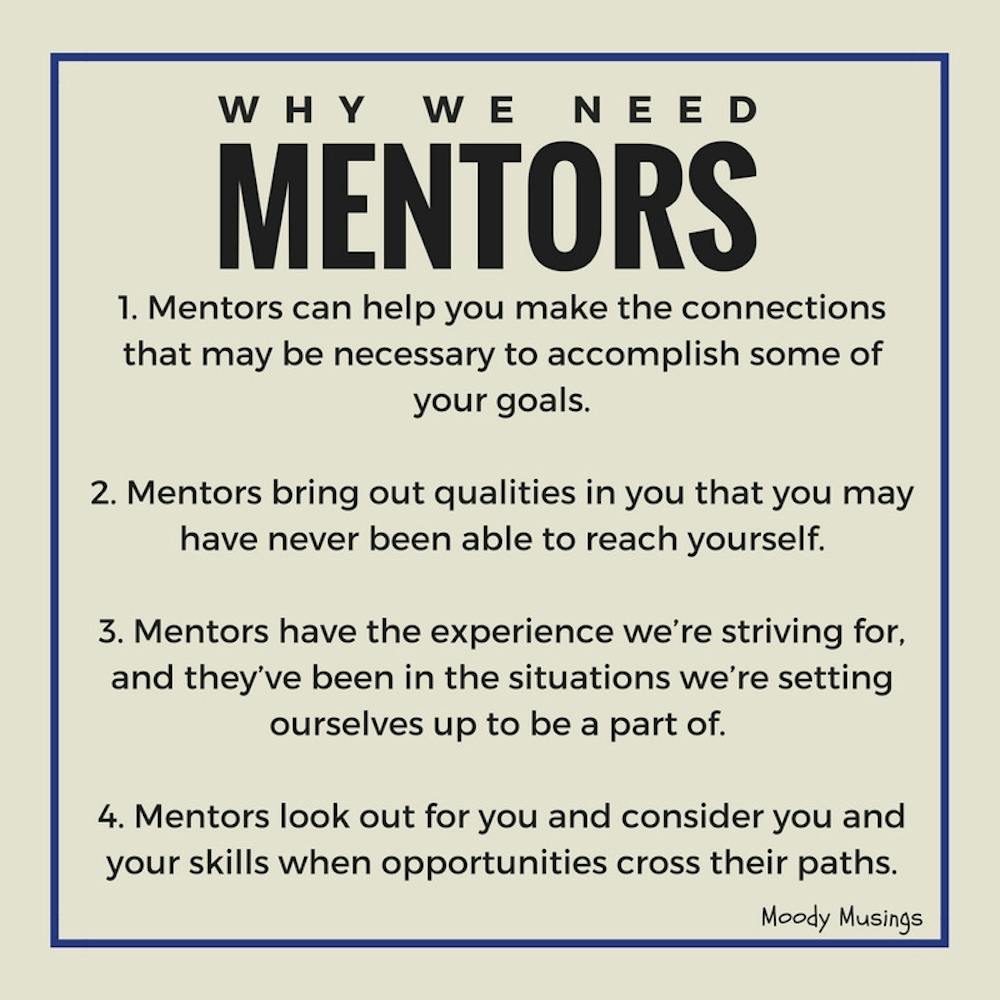I’ve been to two lectures in the past month that have given insight to students about finding success in college and in their career. Each speaker, Timothy Slocum, vice president of system support services at Navicent Health Center, and career consultant Hugh Hunter, both said that one of the most important things you can have is a mentor.
They didn’t specify what kind of mentor would be most beneficial, just that having one in your corner could help you immensely.
A mentor can be someone who is sitting in the exact chair you’d like to see yourself in someday or someone who you know will always be honest with you and lead you in the right direction.
Often in today’s age, talent isn’t always enough. You must also work hard and make proper connections. Mentors can help you make the connections that may be necessary to accomplish some of your goals. For years, I’ve heard, “It’s not what you know, it’s who you know.”
But apart from making those connections, mentors often bring out qualities in you that you may have never been able to reach yourself. Our mentors teach us things we may have never considered as something we needed to know for our particular career path: how to play the role of a team member, how to form professional relationships, why it’s important to take everything one step at a time and why the process is important for the progress.
Mentors have the experience we’re striving for, and they’ve been in the situations we’re setting ourselves up to be a part of. The question may be — how do you find the right mentor?
I’ve had mentors fall into my lap, simply because I went to them for something in particular once and found myself wanting to soak up all of their knowledge and insight. Other times, they have reached out to me. Remember that they may see things in you before you can, and because of this, they may be drawn to help you develop to your potential. Take up opportunities to talk and learn from these professionals.
Other times, you may admire how well someone carries themself, speaks or just about everything they’ve done or accomplished. Don’t hesitate to reach out to these people and ask them for some kind of advice. Ask them to give you some feedback on a resume. Ask them if they know anyone who is working or hiring in your field, if they aren’t a part of your field themselves. Once you build a relationship with them, you’ll find that you can come to them with just about everything. This could be for career advice, academic insight or just a comforting conversation.
They’ll begin to look out for you and consider you and your skills when opportunities cross their paths. And above all, you have a new connection. Don’t allow your pride to get in the way of you gaining a vital resource.
Professionals don’t have to be the only mentors though. In fact, some of the best mentors can be found in students that are just a couple of years older. These students can give you advice on classes to take and which professors would be best for you to work with. They can help you apply for the things they’ve already participated in, and most importantly, they can keep you from making some of the same mistakes they did.
Sharing the journey is just as important as the journey itself. You don’t have to reach your goals alone, and you can even reach them faster with some help along the way. Mentors will guide you. After you begin to see some of your hard work pay off, don’t forget to be the mentor that you once needed to others by allowing them to follow in your footsteps.
[related title="Related Stories" stories="21148,20974,20880" align="center" background="on" border="none" shadow="off"]
Moody Musings: Step #1, Find a Mentor

A mentor can be someone who is sitting in the exact chair you’d like to see yourself in someday or someone who you know will always be honest with you and lead you in the right direction.




